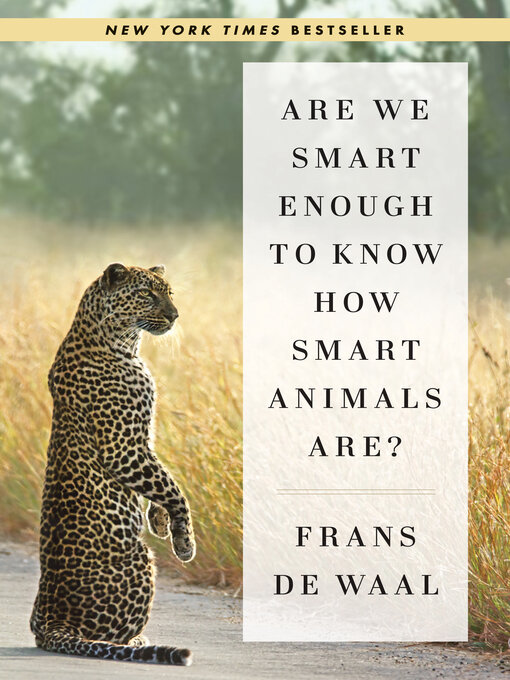


'If you are at all interested in what it is to be an animal, human or otherwise, you should read this book' - Guardian 'Engrossing and remarkable' - BBC Wildlife Magazine With astonishing stories of animal cognition, expert science and De Waal's deeply enquiring mind, Are We Smart Enough to Know How Smart Animals Are? challenges everything you thought you knew about animal-and human-intelligence. But what if it is more like a bush, with cognition taking different forms that are often incomparable to ours? Would you presume yourself dumber than a squirrel because you're less adept at recalling the locations of hundreds of buried acorns? Or judge your perception of your surroundings as more sophisticated than that of a echolocating bat? De Waal tells of the rise and fall of a view of animals as stimulus-reponse beings, and opens our eyes to their complex and intrricate minds. People often assume there is a cognitive ladder, from lower to higher forms, with human intelligence at the top. Based on research involving crows, dolphins, parrots, sheep, wasps, bats, whales, and of course chimpanzees and bonobos, Frans de Waal explores the scope and the depth of animal intelligence, revealing how we have grossly underestimated their abilities. Take the way octopuses use coconut shells as tools elephants that classify humans by age, gender, and language or Ayumu, the young male chimpanzee at Kyoto University whose photographic memory puts that of humans to shame. But in recent decades, these claims have been eroded, or disproven outright, by a revolution in the study of animal cognition.

What separates your mind from an animal's? Maybe you think it's your ability to design tools, your sense of self, or your grasp of past and future all traits that have helped us define ourselves as the preeminent species on Earth.


 0 kommentar(er)
0 kommentar(er)
